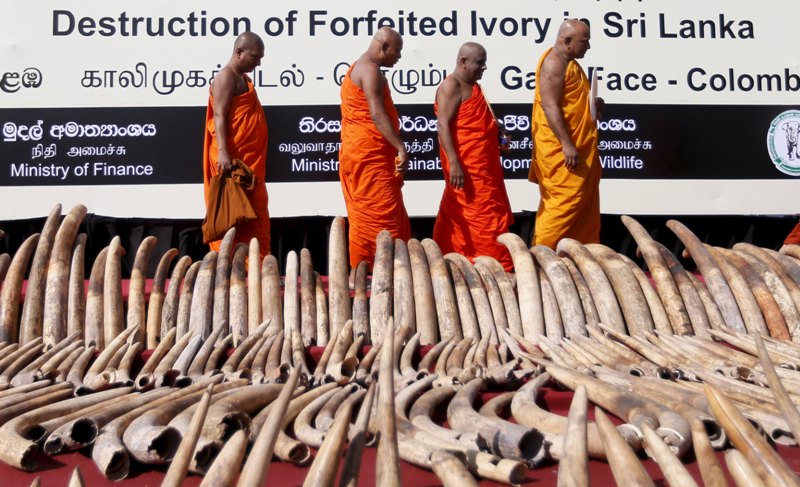Sri Lanka has become the first South Asian country – and the 16th in total – to destroy its stockpile of confiscated illegal ivory.
A total of 359 elephant tusks were crushed during a public ceremony in Colombo, attended by government officials, diplomats, schoolchildren and representatives of the Convention on International Trade in Endangered Species of Wild Fauna and Flora (CITES).
The event also saw several religious leaders perform funerary rites for the elephants killed in order to obtain the ivory, with Buddhist monk Omalpe Sobitha Thero describing this ceremonial gesture as a way of “apologizing for this atrocity.” Hindu, Muslim, Buddhist, and Christian leaders also gave brief speeches in which they reiterated the importance of protecting the environment and condemned poaching.
After being destroyed in an industrial crusher – a process that took seven hours – the ivory was transferred to an incinerator, and is set to be dumped into the Indian Ocean once it has been burned.

Sri Lanka has become the first South Asian country – and the 16th in total – to destroy its stockpile of confiscated illegal ivory.
Worth an estimated $3 million (£2.1 million) and weighing around 1.5 tonnes (1.65 tons), the ivory destroyed at the ceremony was all seized in 2012, when a shipment falsely marked as plastic waste was uncovered by Sri Lankan customs officials while in transit between Kenya and Dubai. An Interpol investigation later traced the ivory back to Mozambique and Tanzania, where elephants are continually poached for their tusks, despite an international ban on ivory trade.
Since the majority of Sri Lankan elephants lack tusks, the poaching problem is largely concentrated in Africa, with reports of around 100 being slaughtered every day in 2012.
The ban on the sale of ivory was brought into effect in 1989, although while elephant populations in Africa did briefly increase immediately following this, studies have revealed that their numbers are continuing to diminish across the continent due to illegal sales.
Most ivory is reportedly sold in Asian and Middle Eastern markets, where it is used for folk medicines and ornamental purposes. It is feared that if poaching continues at its current rate, African elephants could face extinction in as little as 15 years.
Source of Information: IFL Science
